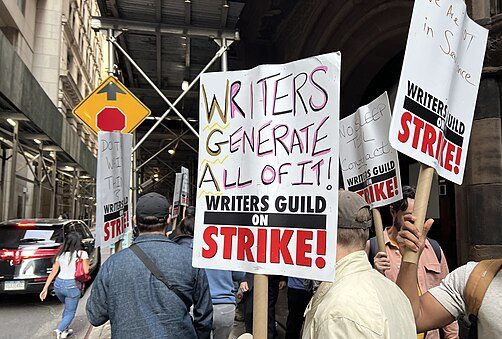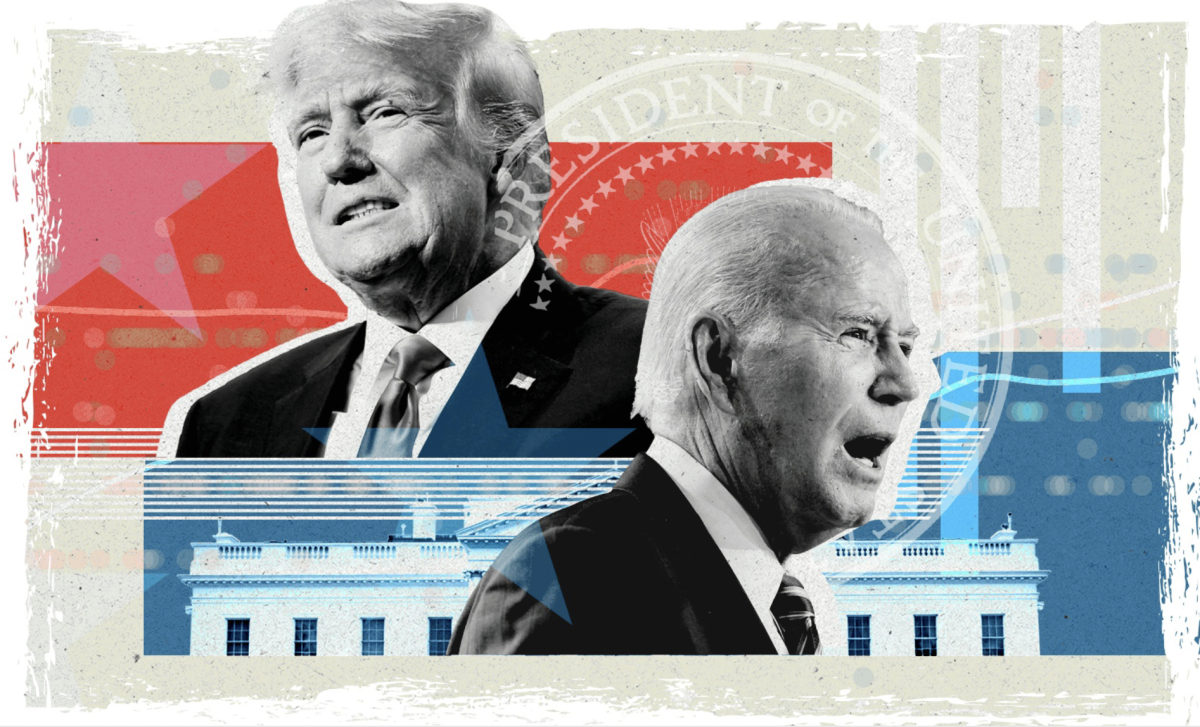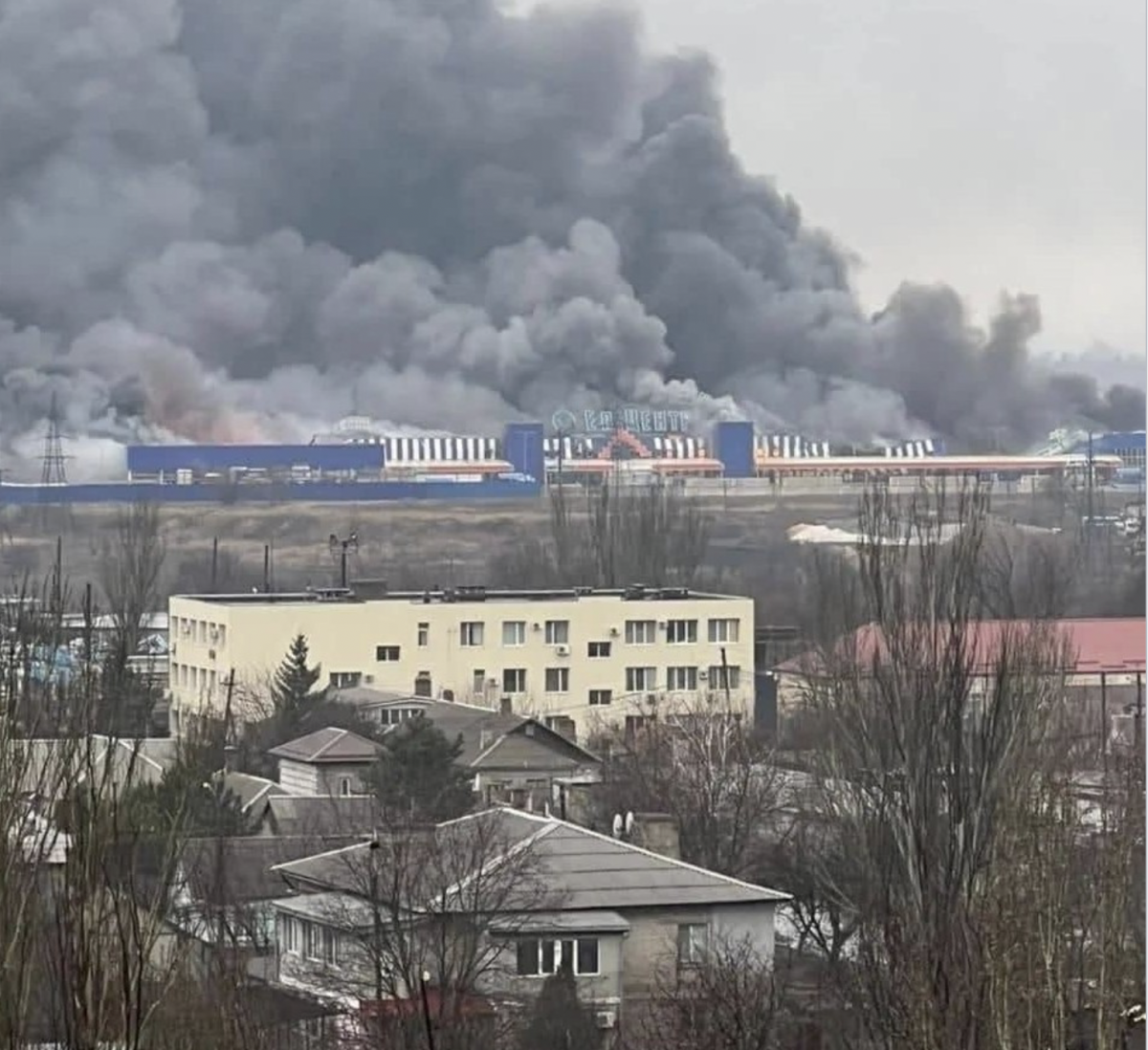
“Writers Guild of America 2023 writers strike” by Fabebk is licensed under CC BY-SA 4.0.
The writer’s strike was a long fight from May 2nd through September 27th between the Writers
Guild of America (WGA) and Alliance of Motion Picture and Televison Producers (AMPTP).
The strike was 148 days in total. Writers went on strike for a notorious number of reasons, but
their main focus was demanding higher wages, more staff in TV rooms, and a barrier of use of
AI (artificial intelligences). Writers have been struggling financially when TV shows would
blow up instead of short seasons and smaller unused payments.
The WGA wanted more money in areas of media to increase their income. TV series writing
was another one of their demands for more funds. They wanted more demands for more funds
for their pension and healthcare benefit.
They began negotiations on March 20th and had planned on it lasting for two weeks,
unfortunately they could not come to an agreement.
“Our wages have been falling in the last few years as the streamers’ profits have been
skyrocketing,” told Amanda Mercedes to TODAY.com.
Greg Iwinski, 38, an Emmy winner who has written for “Last Week Tonight with John
Oliver,” and among other shows have stated that The WGA negotiating team have been trying to
be in communication with studios for six weeks face-to-face which is not simply an economic
negotiation.
On Tuesday, September 26, the leadership announced that they had voted to approve the
contract, they have also voted to end the strike. The WGA said that writers can now return to
work during the approval voting. People think things can return to normal overnight, but it does
not work like that. The writers’ strike made TV shows and movies have lengthy hiccups and
delays. Once the actor’s strikes end, TV shows and movie production would go up quickly,
unfortunately, it would be an extended wait.
(People picket outside of Paramount Pictures studios during the Hollywood writers’ strike on May 4 in
Los Angeles, taken by David McNew/Getty Images)
Guild of America (WGA) and Alliance of Motion Picture and Televison Producers (AMPTP).
The strike was 148 days in total. Writers went on strike for a notorious number of reasons, but
their main focus was demanding higher wages, more staff in TV rooms, and a barrier of use of
AI (artificial intelligences). Writers have been struggling financially when TV shows would
blow up instead of short seasons and smaller unused payments.
The WGA wanted more money in areas of media to increase their income. TV series writing
was another one of their demands for more funds. They wanted more demands for more funds
for their pension and healthcare benefit.
They began negotiations on March 20th and had planned on it lasting for two weeks,
unfortunately they could not come to an agreement.
“Our wages have been falling in the last few years as the streamers’ profits have been
skyrocketing,” told Amanda Mercedes to TODAY.com.
Greg Iwinski, 38, an Emmy winner who has written for “Last Week Tonight with John
Oliver,” and among other shows have stated that The WGA negotiating team have been trying to
be in communication with studios for six weeks face-to-face which is not simply an economic
negotiation.
On Tuesday, September 26, the leadership announced that they had voted to approve the
contract, they have also voted to end the strike. The WGA said that writers can now return to
work during the approval voting. People think things can return to normal overnight, but it does
not work like that. The writers’ strike made TV shows and movies have lengthy hiccups and
delays. Once the actor’s strikes end, TV shows and movie production would go up quickly,
unfortunately, it would be an extended wait.
(People picket outside of Paramount Pictures studios during the Hollywood writers’ strike on May 4 in
Los Angeles, taken by David McNew/Getty Images)






